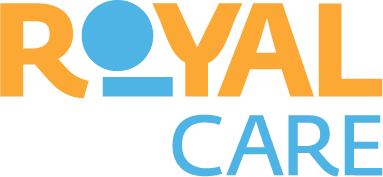Short-Term Home Care vs. Long-Term Home Care
By Kayla Orange
Many families hire a professional caregiver so that their aging loved ones can enjoy a safe, independent lifestyle in the comfort of their own homes. Home care providers regularly evaluate in-home care plans and adjust them to accommodate changes in a client’s physical and mental health. The result is a highly flexible care option that can be specialized to match a person’s unique needs.
Home Care Options
Whether your loved one needs temporary assistance after major surgery or your elderly parent requires around-the-clock care for Alzheimer’s, there are home care options to suit your needs. Professional home care is often separated into two categories- short-term care and long-term care. Both types are ideal for those who need help with their daily activities and may serve as a transitionary period between the hospital and independent living at home.
However, aside from the difference in timeframe, each type of home care also consists of unique services and has distinct goals. Understanding the differences between short- and long-term care can help you choose the right kind of service for your loved one.
What is Short-Term Home Care?
As the name suggests, short-term care is usually only required for a couple of days to a few months. Doctors typically recommend short-term care for patients while recovering from an injury or intensive surgery or as part of a rehabilitation program. Most often, the primary goal is to help seniors make a smooth transition from the hospital back to their homes.
Short-term caregivers help with all daily activities, including bathing, laundry, and preparing meals. Home care professionals can also drive their clients to and from doctor’s appointments and run certain errands, such as managing and picking up prescriptions. However, for patients who require more specific care, skilled or specialized caregivers can also provide various medical services, such as dispensing medications, dressing wounds, and monitoring vital signs. Other examples of skilled care include:
· IV Therapy
· Medication injections
· Post-surgical and wound care
· Physical, occupational, and speech therapies
· Monitoring of heart rate, blood pressure or blood sugar
What is Long-Term Home Care?
While short-term care is meant to ease patients back into independent living, long-term care has significantly different goals. Long-term care is best for seniors who need the assistance of a caregiver for daily activities in addition to ongoing access to licensed medical care. These patients are typically struggling with chronic, debilitating, or progressive conditions and will likely require full-time care to help with their needs.
Long-term care patients are typically unable to live independently and can’t perform basic daily activities on their own, including bathing, grooming, dressing, and preparing meals. The need for this type of care may arise suddenly, such as after a stroke or heart attack. However, it can also develop gradually as a loved one get older or after developing an illness or disability. Ideal candidates for long-term home care are those that have:
· Parkinson’s disease or another neurological condition
· Dementia, Alzheimer’s disease, or another cognitive disorder
· Chronic conditions that limit mobility and ability to live independently
Hiring from a Home Care Agency
Although friends and family members have the option to care for their loved ones on their own, there are huge benefits to hiring a licensed caregiver through a professional home care agency. At Royal Care, we have dedicated and trained personnel who will work with you to develop a care plan catered to the specific needs of you or your loved one.
You can sleep easy at night knowing that our in-home companions are all subject to background and criminal checks and undergo extensive training to provide an unmatched level of care. Additionally, our HHA's are all registered with New York State Department of Health.
Whether you need long-term or short-term home care, our compassionate and knowledgeable support staff is here to serve you.
For licensed home care services, you may contact us at (718) 851-3800 or visit www.royalcare.nyc
If you are looking for a skilled professional, our certified team may be able to assist:
References:
https://www.agingcare.com/articles/difference-between-short-and-long-term-home-care-154984.htm
https://www.jfcares.org/what-is-home-care/long-term-short-term-care/
https://bridgewayseniorliving.com/short-term-care-vs-long-term-care/
https://www.nia.nih.gov/health/what-long-term-care
https://www.avivaseniorlife.org/skilled-nursing-vs-long-term-care/
https://www.medicaidplanningassistance.org/what-defines-long-term-care/



